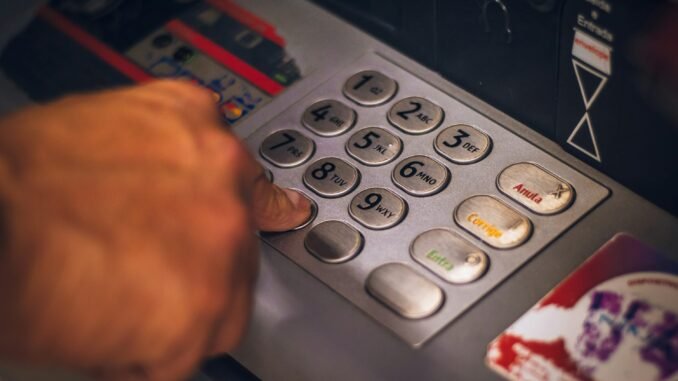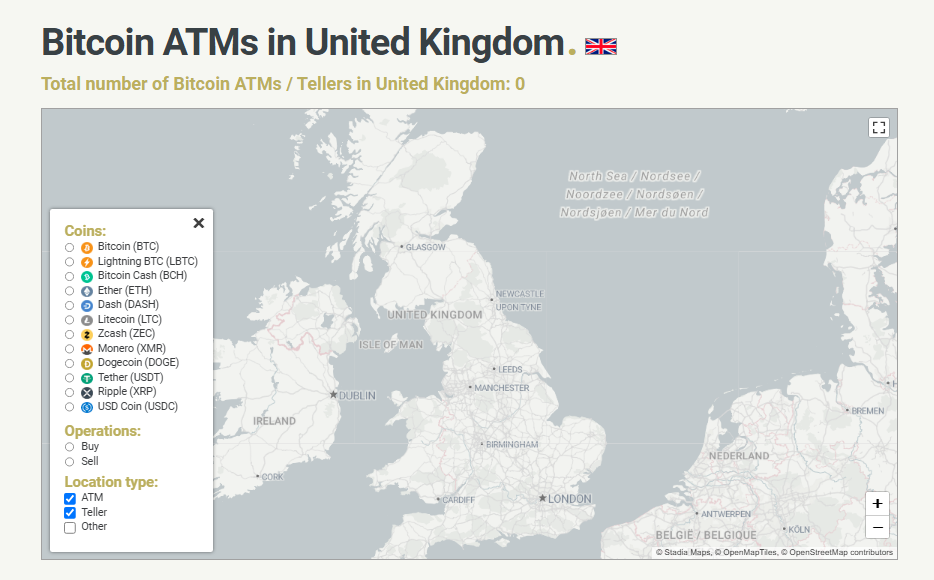
A pair of arrests and the seizure of seven crypto ATMs in southwest London marked the latest move by UK regulators against unlicensed digital‑currency services.
According to a press statement issued by the Financial Conduct Authority, two people were interviewed under caution after officers from the FCA and the Metropolitan Police searched four sites this week.
Investigators say the machines were part of an unregistered exchange network that skirted anti‑money laundering rules.
Strict Crackdown In London
Based on reports from the FCA, operating a crypto ATM without registration has carried real consequences for some.
Since January 2021, any firm offering cryptoasset exchanges or kiosks must sign up with the agency and carry out customer due diligence.
Those checks include verifying where funds come from and making sure machines can’t be used to hide illicit money.
Now, with seven ATMs taken offline and two suspects released pending further inquiries, the message is clear: regulators aren’t messing around.

Source: Coin ATM Radar
Warning On Unregistered Machines
The FCA’s executive director of enforcement and market oversight, Therese Chambers, warned operators that unregistered machines “only support crime.”
She pointed out that there are currently zero legal crypto ATMs in the UK, and anyone caught running one faces not just fines but possible jail time. No formal charges have been filed yet in this latest sweep, but the probe is ongoing.
Several weeks ago, the first criminal sentencing for an unregistered crypto ATM network made headlines. A certain Olumide Osunkoya was handed a four‑year prison term after running a £2.5 million operation through his company, GidiPlus.
Court documents showed his ATMs bypassed basic safeguards and charged markups of up to 60%. He continued despite being denied FCA registration and was convicted of using false identity documents, forgery and possession of criminal property.
Comparison With Other Countries
While the UK maintains a total ban, other nations are taking varied paths. In the US, more than 29,000 crypto ATMs are up and running, though state regulators are stepping in.
Nebraska imposed licensing rules, transaction caps and scam refund requirements. In Spokane, Washington, city officials moved to ban machines outright.
New Zealand went further with a full national ban, and in Australia new controls now limit how much cash customers can swap per transaction and force kiosks to display scam warnings.
This patchwork of approaches shows there’s no single answer. Some argue that a strict ban stops criminals. Others say regulated machines can help everyday people buy crypto safely—if those machines follow the rules.
Featured image from Unsplash, chart from TradingView

Editorial Process for bitcoinist is centered on delivering thoroughly researched, accurate, and unbiased content. We uphold strict sourcing standards, and each page undergoes diligent review by our team of top technology experts and seasoned editors. This process ensures the integrity, relevance, and value of our content for our readers.

